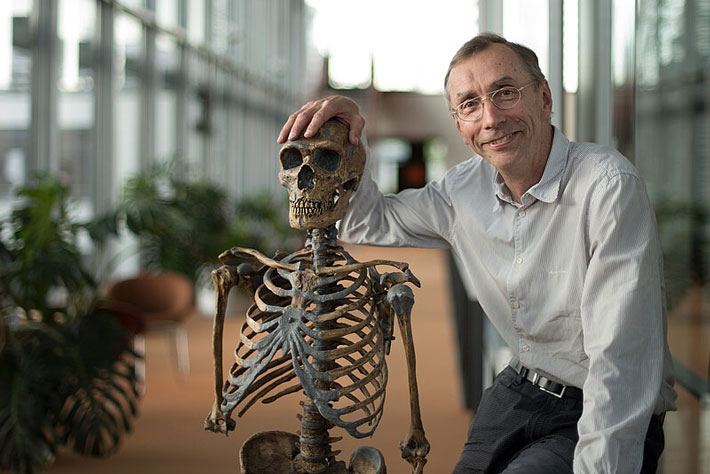 STOCKHOLM, SWEDEN—Svante Pääbo of the Max Planck Institute for Evolutionary Anthropology has been awarded the Nobel Prize in Physiology or Medicine for his work to map the Neanderthal genome and identify Denisovans, according to a BBC News report. Pääbo first sequenced DNA from a 40,000-year-old piece of bone, showing that Neanderthals were a distinct species from modern humans. Then, he sequenced a sample of DNA extracted from a finger bone recovered from Siberia’s Denisova Cave, revealing that it came from a previously unknown hominin now known as the Denisovans. The prize committee explained that Pääbo’s work has helped researchers to explore human evolutionary history, human migration and interactions with other hominins, and what makes us uniquely human. “I was very surprised and overwhelmed, I had not expected this,” Pääbo said. To read more about his pioneering research, go to "Neanderthal Genome," one of ARCHAEOLOGY's Top 10 Discoveries of the Decade.
STOCKHOLM, SWEDEN—Svante Pääbo of the Max Planck Institute for Evolutionary Anthropology has been awarded the Nobel Prize in Physiology or Medicine for his work to map the Neanderthal genome and identify Denisovans, according to a BBC News report. Pääbo first sequenced DNA from a 40,000-year-old piece of bone, showing that Neanderthals were a distinct species from modern humans. Then, he sequenced a sample of DNA extracted from a finger bone recovered from Siberia’s Denisova Cave, revealing that it came from a previously unknown hominin now known as the Denisovans. The prize committee explained that Pääbo’s work has helped researchers to explore human evolutionary history, human migration and interactions with other hominins, and what makes us uniquely human. “I was very surprised and overwhelmed, I had not expected this,” Pääbo said. To read more about his pioneering research, go to "Neanderthal Genome," one of ARCHAEOLOGY's Top 10 Discoveries of the Decade.
Nobel Prize Awarded for Development of Paleogenomics
